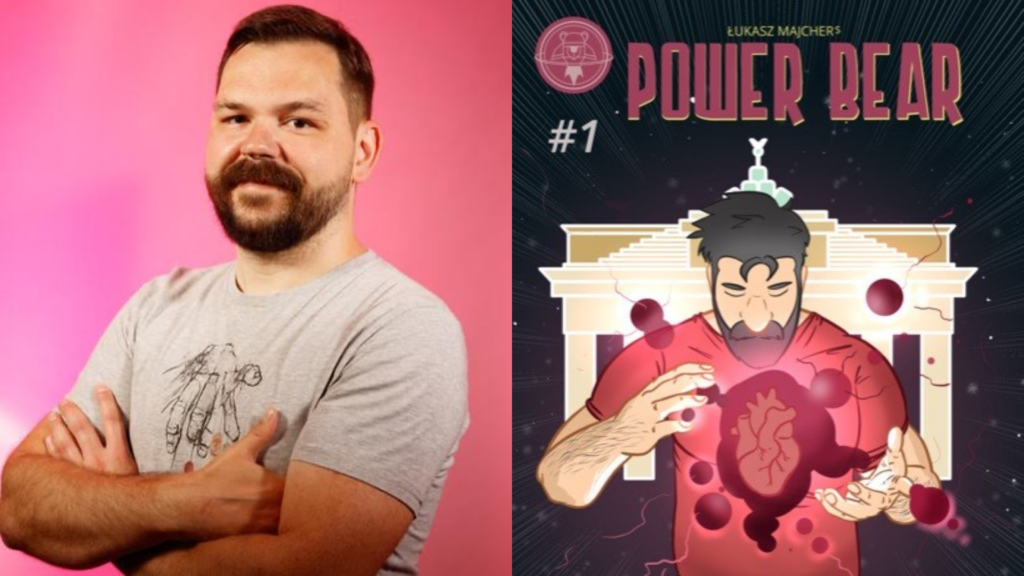
Łukasz Majcher discusses his new queer superhero, ‘Power Bear’
Queer representation in the media is on the rise, especially when it comes to comics. The past few years have seen a rise in LGBTQ representation in comics. But, what about the Bears specifically? Despite the fact that LGBTQ representation is on the rise, Bears and larger folks still seem underrepresented in the media. Well, this is where Power Bear comes in.
In Power Bear, a seemingly unassuming office clerk becomes a queer superhero. He fights everything from homophobia and mental health issues, to aliens and the apocalypse. Berlin-based creator Łukasz Majcher says he wanted Power Bear to be relatable, with the hero battling extraordinary things, but also things that everyday people battle as well.
This seems to have been a winning concept, because Power Bear seems to be growing in popularity, especially with those in the queer community. We had a chat with Łukasz to discuss Power Bear, and the process of creating this very entertaining, engaging and pertinent work of fiction.
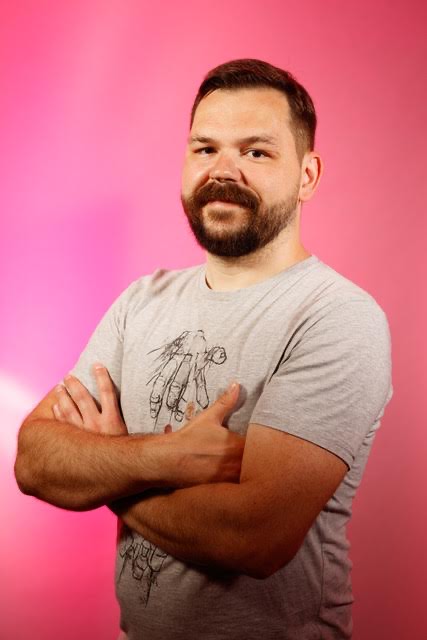
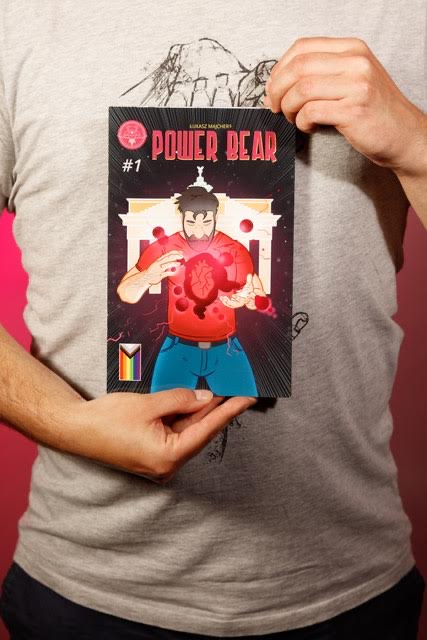
Kyle Jackson: Can you tell us a bit about your background and how long have you been an artist/comic artist?
Łukasz Majcher: I can certainly say that I have always felt like a comic book artist, but it was only when I moved to Berlin that I managed to publish something. Earlier, I mainly created for drawers – although my mother constantly encouraged me to act on a larger scale.
Then these roles were taken over by my wonderful partner, Stefan, who not only helps me create comics, but also inspired the character of Power Bear.
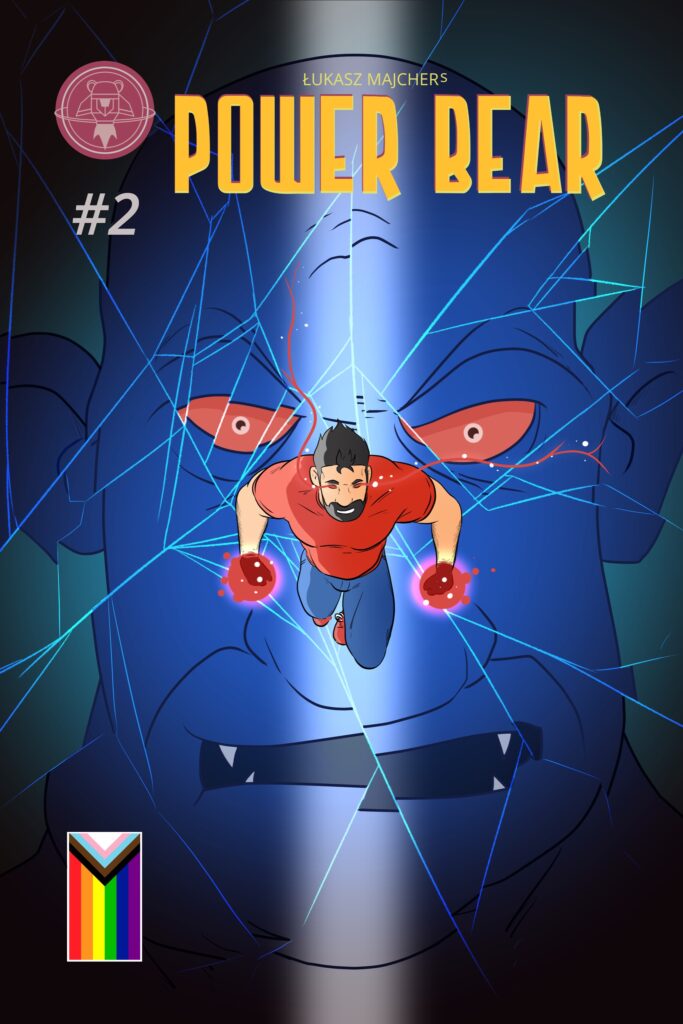
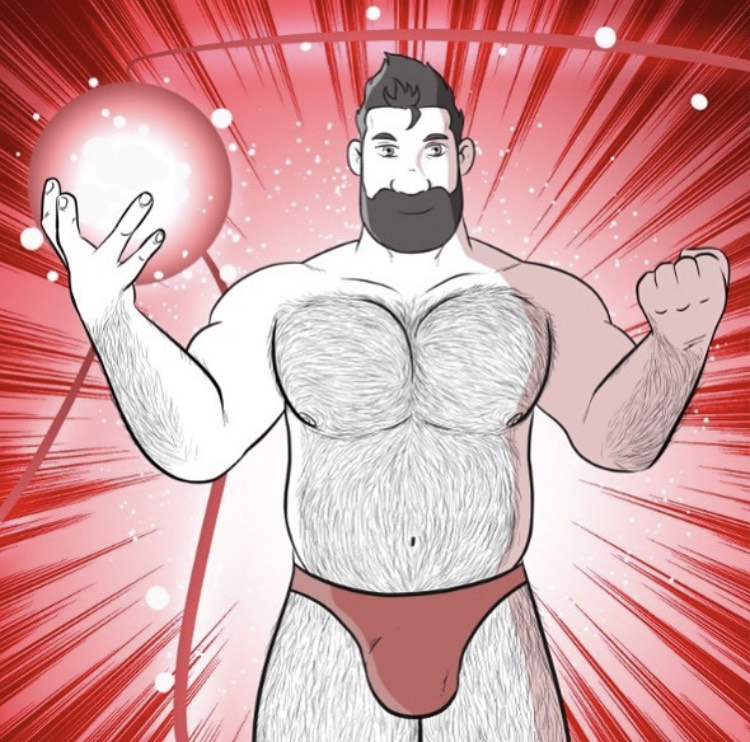
KJ: Where did the idea for Power Bear come from?
LM: I have always loved American comics with superheroes and I knew that if I ever release my own comic book, it would be in this format. Over the years, however, I’ve also read many other comic book genres. I love manga and graphic novels.
Power Bear is visually a mixture of all my comic book inspirations. Besides, I wanted to create a personal story. Superhero plots are exciting, but the most memorable ones are those that touch the hero’s inner experiences.
Therefore, I felt that my partner’s struggle with depression could form a good basis for the Power Bear story. I was also long aware of the fact that too little is said about the mental health of the bear (and LGBT+) community. Each of us knows a bear who is seemingly very confident, but in fact struggles with huge complexes and trauma.
KJ: Power Bear explores themes like body positivity, homophobia and other topics relevant to the Queer Community. Can you talk a bit about this, and why you wanted to explore these themes in your work?
LM: I’m glad you ask. The topic of homophobia was very relevant during the creation of Power Bear. I originally come from Poland. At the time I was drawing this comic, the right-wing government of my homeland was introducing dangerous laws that were hitting the LGBT+ community. Therefore, the main villain personifies the worst traits of the radical right: nepotism and intolerance.
Besides, as you know, I grew up on comics with X-Men and the discrimination issues were very important there. In my comic book, queer people gain superpowers to the dismay of society. On the subject of the body positivity, I have approached it a bit differently. My Hero Max is well built. But does that mean he’s happier? Many of us want to be beautiful and muscular gods. But we still grapple with traumas and complexes. We are portrayed as always smiling and colorful in mass pop culture. However, we must not forget that we are the same people as the rest. And very often we have a lot more difficult.
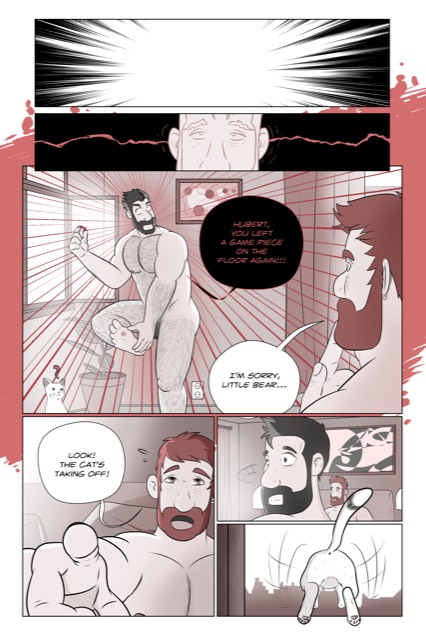
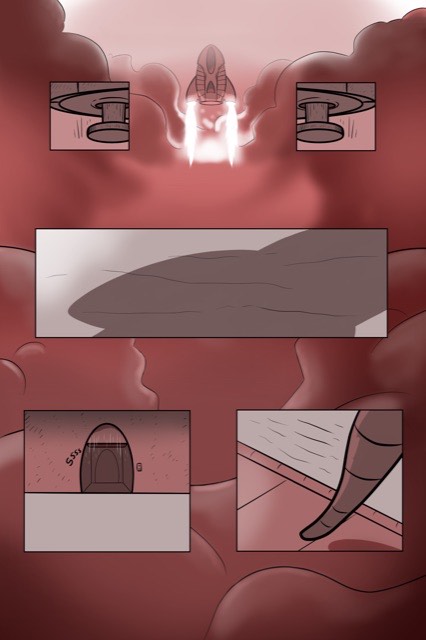
KJ: Do you hope Power Bear will help open the door for more queer representation in the media?
LM: It just depends on how popular my comic becomes so I strongly encourage everyone to support me and spread the word about Power Bear. So far, the reception of the comic book is very good. I very often get personal messages from readers who have always dreamed of a bear superhero.
I was most touched recently by the message from the mother of an autistic boy. She ordered my comic book to cheer him up. At such moments, you feel that you are creating something important. It is also another example of how important representation is.
KJ: Who are some of your biggest comic inspirations?
LM: My favorite superhero has always been Daredevil. His internal struggles and the fact that he is blind makes him very much an interesting character.
Plus, I’ve always liked characters who didn’t have to use physical force to kick their opponents’ butt. It made it easier for me to identify with them. In this case I mean Scarlet Witch and Green Lantern. No wonder Power Bear has very similar powers.
In recent years, a comic book that has opened my eyes to the possibilities of this medium was Sculptor by Scott McCloud. Amazing work.
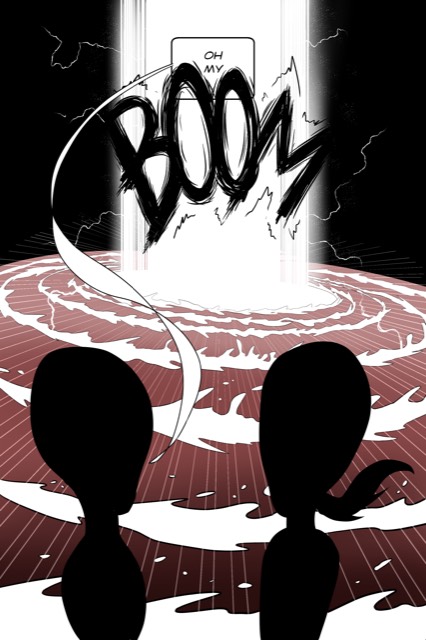
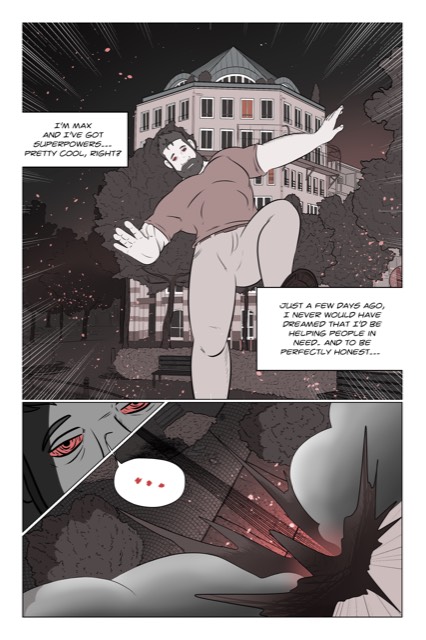
KJ: Are you working on any other projects currently?
LM: Yes. Two comic anthologies in which I took part will be published soon. The first is a joint book by the Berlin comic book collective Art Horse. My short space opera comic Bears in Space will appear on its pages.
The second is a secret project that I can’t say too much about yet. Also here local artists from Berlin were invited to participate. I can only reveal that it will be a very unusual comic for me. It’s kind of an experiment that I had a lot of fun with.
I also plan a horror graphic novel set in the beautiful areas of the Bavarian Forest in Germany. Of course with the characters being Bears.
To order your copy of Power Bear, visit majter.bigcartel.com!
Follow Łukasz Majcher on Instagram!
This article was originally published on our sister site, Bear World Magazine.






